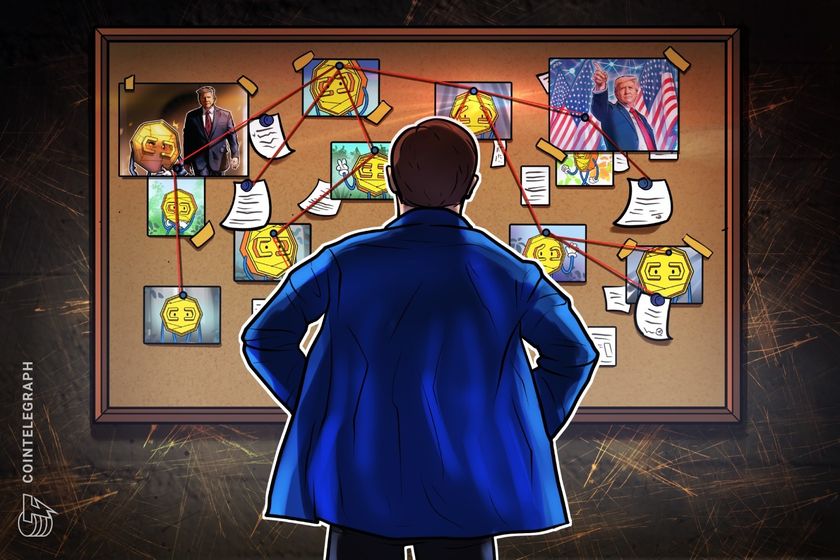
Web 3.0 Games Are Clashing With Users for These Five Reasons
HodlX Guest Post Submit Your Post
The rise of Web 3.0 games caused a stir in the gaming world in 2021. However, despite their initial popularity, these games are now struggling to maintain even a fraction of their active users.
In this article, we’ll go over five reasons why Web 3.0 games might not be fun for users to play and more importantly, if they’ve had their day or are here to stay.
Number one hey are not built to provide a gaming experience
Blockchain games are complex. To start playing most games, players need to create a crypto wallet, buy crypto, connect the wallet to the game and more often than not purchase an NFT (non-fungible token). That is a lot to navigate before even beginning the gameplay.
Another issue is the slow speed and high fees associated with blockchain transactions. Web 3.0 games rely on blockchain technology, which is notorious for slow transaction times and high fees.
This can greatly impact the gaming experience, as players may have to wait several minutes or even hours for their in-game assets to be transferred or for a purchase to be processed.
There have been numerous instances of network clogging. The BAYC land sale is a classic example.
Web 3.0 technology is new enough that best practices are still being formulated and the complexity in solving this leads to developers focusing on tech issues instead of enhancing gameplay.
Number two hey are built as earning farms and not to have fun
Most P2E (play-to-earn) games today have been built with a focus on profit rather than entertainment nd this seems to be a three-part issue.
High entry barrier
In Web 3.0 games, players need NFTs to get access to a game that is most often very expensive.
A Web 3.0 game launched by Yuga Labs, the creators behind BAYC (Bored Ape Yacht Club), requires players to own a ‘Sewer Pass’ (2.89 ETH / approximately $4,600) in order to play for undisclosed prizes, depending on your leaderboard standing.
On the other hand, with the free-to-play versions in Web 3.0, the gaming experience often falls short and does not meet the standards that gamers expect.
Lack of social gaming
Another challenge of Web 3.0 games is the absence of social gaming elements and insufficient community engagement. This automatically causes low activity and a lonely gaming experience due to limited player adoption.
Superficial games
A large number of Web 3.0 games are just DeFi (decentralized finance) apps masked as games. They lack the depth and sophistication to attract gamers in the long run and have little to no gameplay with poor tokenomics and a non-existent economy.
Number three hey cannot be played on mobile
While gamers in Web 2.0 are moving toward a convenient and quick-to-play mobile gaming experience, Web 3.0 games are chasing the declining desktop gamer base.
Even if they’re available on mobile, it’s mostly Android because Apple levies a heavy tax on game developers to sell on their devices. Roughly a third of mobile users are on iOS, and this number is higher in developed countries.
The lack of mobile compatibility forces many gamers to use a desktop, which significantly limits their accessibility and convenience. This makes it difficult for players to enjoy the games on the go.
Number four here is too much FUD (fear, uncertainty, doubt) that kills the fun
Web 3.0 games have been plagued with rug pulls, project collapses and scams. Beyond the man-made pump and dumps, most games have been observed to be naturally cyclical showing a dip after the initial high due to unsustainable economic models.
Since the beginning of 2022, the top 10 blockchain gaming projects by market capitalization fell as much as 95% according to Delphi’s The Year Ahead for Gaming report.
The cyclical nature of Web 3.0 games and the inherent price crash does not give players any comfort. A survey by Coda Labs found that mainstream gamers feel negatively toward common tenants of Web 3.0 gaming, such as cryptocurrency and NFTs.
Even top blockchain games like Axie Infinity and Alien Worlds, which took the world by storm in 2021, struggled to retain between five to 10% of their active users.
Number five egulatory uncertainty adds to the FUD
The market of 2020–2021 experienced exponential growth. But 2022 saw an enormous breach of ecosystem-wide trust from the Terra Luna collapse to the FTX-Alameda blow-out. This has put vulnerabilities of the sector in focus.
Japan has recently relaxed requirements for token listings and pushed a more welcoming message for firms. China banned crypto trading and clamped down on mining. India revealed that IMF is working with G-20 for crypto regulations.
The European Union’s sweeping MiCA (Market in Crypto-Assets) legislation is slowly moving toward becoming law, which will apply stricter rules than are in place now.
A lot of countries are wanting to regulate crypto and blockchain technology by setting rules to protect consumers but not everyone agrees on the same route for these regulations.
Regulatory issues and taxation laws make it difficult for players to move between the financial system and cryptocurrency market. Players find it difficult to convert their winnings off-ramp into fiat after making significant investments and earning rewards.
This contributes to the FUD, as players are uncertain about the future of these games, the value of their in-game assets and their crypto rewards.
In conclusion, while Web 3.0 games have the potential to revolutionize the gaming industry, there are challenges that need to be fixed for them to reach the scale of Web 2.0 games.
As Web 3.0 infrastructure catches up with Web 2.0 capabilities, new blockchain-based gaming mechanics will be reintroduced to the market.
Crislin Rozario is the growth and marketing lead at One World Nation.
Follow Us on Twitter Facebook Telegram

Disclaimer: Opinions expressed at The Daily Hodl are not investment advice. Investors should do their due diligence before making any high-risk investments in Bitcoin, cryptocurrency or digital assets. Please be advised that your transfers and trades are at your own risk, and any loses you may incur are your responsibility. The Daily Hodl does not recommend the buying or selling of any cryptocurrencies or digital assets, nor is The Daily Hodl an investment advisor. Please note that The Daily Hodl participates in affiliate marketing.
Featured Image: Shutterstock/lumerb
The post Web 3.0 Games Are Clashing With Users for These Five Reasons appeared first on The Daily Hodl.
Go to Source
Author: Crislin Rozario









